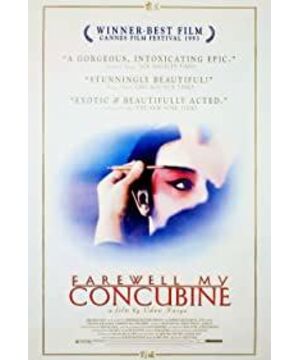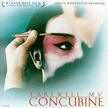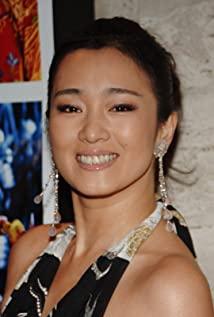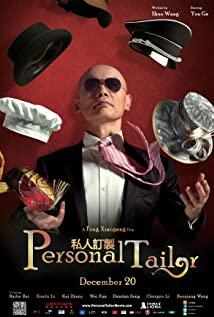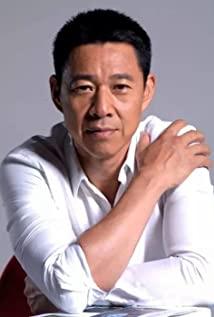From the perspective of the original work, the movie "Farewell My Concubine" has four main changes. One is that the young Xiaodouzi burned the coat left by his mother with anger. There is no such story in the original book. The second is to add a scene where Xiao Shitou uses a pipe to pry Xiaodouzi's mouth when he memorizes "Sifan" wrongly. There is also no such story in the original book. Third, the person who saved the sword from the fire during the Cultural Revolution was changed to Juxian instead of Cheng Dieyi himself. Fourth, in the finale, Cheng Dieyi cried himself, and the original is that he came to live a normal life sober, using the four words "the show is over." Judging from these four things, in fact, except for the fourth item, they are nothing more than episodes in the movie, which is not worth mentioning; people of the original school may feel that these modifications and additions are more inexplicable. However, if you can go into the play and delve into the hearts of the characters, I think these four modifications are of high value. There is no error in processing according to the original, but after the revision, the script appears to have been sublimated. Maybe the original fans will think it is from HIGH, but I still think it is desirable and credible. In detail, it is as follows: 1. The burning of clothes, I think, is to highlight the masculine spirit. Although Xiaodouzi was feminine in appearance, he was still a man in the mainland. The children in the kiln were sensible early and knew that their mother was a prostitute. They were annoyed by telling the children, but they were unable to fight, so Fenyi showed a little bit of final resistance. Many boys have experienced the behavior of becoming angry when they were young. And to watch the next plot: Little Stone came in, and found that the new kid was burning clothes, he knew something in his heart, and asked, "Are you bullying him?", and then invited him to join him. sleep. This is also the first contact between Xiao Shitou and Xiao Douzi, and I am afraid it is also the first time Xiao Shitou has left a good impression in Xiao Douzi's heart. Second, pipe prying is indeed cruel, but the reason is the same as above. It can also be seen as a little stone boy who is full of anger, angry into anger, and hating iron is not steel. A great opportunity to make a living, it was ruined by Jie Gulu when you saw it. You said that it is not to beat or to curse. When you are in a hurry, you can only think of what to do. Well, your mouth is cheap, I will make you mouth! ——However, what he didn't expect was that, even though Xiaodouzi's words were cleared up after that, he turned on a certain switch of Xiaodouzi. After his younger brother was abused, he suddenly thought he was a younger sister. Furthermore, from the point of view of the screen, why use a pipe prying mouthpiece? Because afterwards, when the blood dripped from the corners of the mouth and down the white cheeks, the master and I were stunned...the beauty after the bleak abuse~~ Except Fenghua Peerless, there is really nothing else to say Of it. So movies and novels are originally different In the West, the film should explain the story, but also explain the picture, must be treated differently. Third, I think the adaptation of the Sword in Fire is extremely successful. What is that sword? It was the love that Xiaodouzi had promised to Xiaoshishi since he was a child, and it was Dieyi who sold his soul to some extent and only bought it after he was willing to fall. The first time he gave the sword to Xiaolou was on the night Duan Xiaolou got married. In front of Juxian, Duan Xiaolou didn't recognize that it was the sword in his original photo. Although Juxian didn't know its origin, he saw it with his own eyes and knew that it was precious. When he visited Yuan Siye, he even understood the value of this sword. Strictly speaking, that sword is equivalent to the token of the deepest and most unshakable feeling between Xiaolou and Dieyi, or the last salvation in Cheng Dieyi's soul. If the sword is destroyed, the person is also finished. In addition, although Juxian and Dieyi have a poor relationship, when Dieyi quit smoking, she cried to her mother in a coma, and some more details can be seen. Juxian could understand it at that time. Die Yi's feelings are gone. At the time of Fen Jian, Xiaolou exposed Die Yi, which was already adding fuel to the fire. If the last link-Bao Jian-was also burned, then Die Yi would definitely collapse completely, causing him to collapse. Xiaolou may not be peaceful in the future. At the very moment, Juxian rushed to the fire to save his sword, holding the mood of protecting his man, as well as his strange understanding and extreme sympathy for the man who loved him. What’s interesting is that when Cheng Dieyi witnessed this, he really became frantic, because he was crazy and had to face this reality-the man he loved threw his sword into the fire, and that himself The hate woman rescued the sword. This confusion caused him to collapse from another angle, so he murmured: Lie to me, you all lied to me, and then began to talk nonsense, venting all the suppressed words in my heart, and at this time I am afraid he I don't know what I'm talking about anymore. The filming in this section is superb, showing the complexity of human nature to the fullest: Duan Xiaolou, the overlord who was supposed to protect Yu Ji, did not hesitate to abandon his feelings for self-preservation; Juxian, who was supposed to be a third party, became a concubine. Protector (in fact, it should be reversed); Cheng Dieyi, who was supposed to be the victim, became the perpetrator... If according to the original work, Cheng Dieyi rescued the sword from the fire by himself, then he would be free from this spirit and it would be completely different. Kind of taste. Fourth, self-caught is a good ending. Since the previous "no madness, no life" is the only portrayal of Cheng Dieyi, in the vernacular, it is life into the drama, then this ending is the only possibility I can think of. At the end of the play, Duan Xiaolou made him memorize "Sifan" again like amused. When Dieyi heard "I am a man", she was stunned, because at that time he finally woke up from his dream and realized that he was a man, he was not Yu Ji, and he fell in love with someone he shouldn't love. Man, he finally broke away from the stage at that time. However, that sobriety only lasted a few seconds. He didn't know whether it was because of avoiding the unbearable life, or the nostalgia for the play, he finally chose to return to the stage and finished the play vigorously, drawing a proper end to the dream life of the play. I think the two are equivalent: Cheng Dieyi's escape from reality is based on not being able to get Duan Xiaolou's love, and vaguely aware that this love is wrong. Then he made mistakes and made mistakes again and again, associating with Yuan Siye, smoking lifelessly, rejecting all the kindness of Juxian, and refusing to defend the fact that he was singing for the Japanese, as if he could see a kind of self-willing depravity at any time. And the emotion of self-defeating intentions-this is an escape from reality-and it is this escape that makes him sublime in art, recognizes the play as his life, and finally reaches the state of enthusiasm. When the acting can no longer be separated from reality, the actors on the stage have acquired all the soul of the role, and the ending of the play will also be the realistic ending. If you want to follow the original text, you will deceive this great soul. Why should everything return to reality? Living in a dream is not the same as a kind of happiness? The last sentence is worthy of intrigue, why does Duan Xiaolou call him "Xiaodouzi"? Personally, I feel that maybe Xiaolou was hit too hard at that time, and his consciousness instantly returned to his youth... Does this represent another kind of relief from the stage life? Is it the ultimate return to basics? I don't know... His emotions-this is a kind of escape from reality-and it is this escape that makes him sublime in art, recognizes the play as his life, and finally reaches the realm of immersion. When the acting can no longer be separated from reality, the actors on the stage have acquired all the soul of the role, and the ending of the play will also be the realistic ending. If you want to follow the original text, you will deceive this great soul. Why should everything return to reality? Living in a dream is not the same as a kind of happiness? The last sentence is worthy of intrigue, why does Duan Xiaolou call him "Xiaodouzi"? Personally, I feel that maybe Xiaolou was hit too hard at that time, and his consciousness instantly returned to his youth... Does this represent another kind of relief from the stage life? Is it the ultimate return to basics? I don't know... His emotions-this is a kind of escape from reality-and it is this escape that makes him sublime in art, recognizes the play as his life, and finally reaches the realm of immersion. When the acting can no longer be separated from reality, the actors on the stage have acquired all the soul of the role, and the ending of the play will also be the realistic ending. If you want to follow the original text, you will deceive this great soul. Why should everything return to reality? Living in a dream is not the same as a kind of happiness? The last sentence is worthy of intrigue, why does Duan Xiaolou call him "Xiaodouzi"? Personally, I feel that maybe Xiaolou was hit too hard at that time, and his consciousness instantly returned to his youth... Does this represent another kind of relief from the stage life? Is it the ultimate return to basics? I don't know...
==============================
The following content was edited in August 2018, from the enthusiastic reviewer "Iris iris", as an extra study of this article, it is of great value for reading!
Iris 2018-07-05 01:01:51
Li Bihua can't write the original work with such a grand era background. After reading "Green Snake" and "Rouge Button", you know that she is in love with her pen. After reading the story, Mr. Chen Kaige thought it was too infrequent and frankly a third-rate novel. It may be extreme, and it is difficult to find this version to compare, but the filmmakers of that generation really did not look down on this kind of popular story. Fortunately, Ms. Xu Feng insisted that Chen Kaige recruited the famous screenwriter Lu Wei to rewrite the script, and only then has the current "Farewell My Concubine". Reed later recalled that this was the only one of all the scripts he had written that was completely based on the script (a total of ninety-nine scenes were written, and Chen Kaige only took out two). Reed also wrote the movie "To Live". He himself mentioned that the most direct influence of being a screenwriter for "Farewell My Concubine" and "To Live" came from the movie "The Last Emperor". It is reasonable to think about it. Only when I have grown up on this soil can I paint the history of drastic changes from the end of Qing Dynasty to the founding of the People’s Republic of China (complementing the other leg outside the film’s emotional line). But Lu Wei's biggest misconduct was that he wrote the script for someone decades ago without signing a contract (the mainland had a weak legal consciousness at that time), and he did not have the copyright and publishing rights of the script. After the film was released with great success in 1993, Li Bihua was once again integrated into a new version of the novel based on Lu Wei's script (euphemism), which is the so-called original version that can be seen on the market. Later, Lu Wei intended to publish the script of "Farewell My Concubine", but it caused copyright disputes, but the film has become a legend. "Farewell My Concubine" goes from romance to epic, thanks to Li Bihua's main character relationship and historical attitude, thanks to Ms. Xu Feng for her perseverance, thanks to the director and Lu Wei's screenwriter, and thanks to the cast and crew.
View more about Farewell My Concubine reviews


